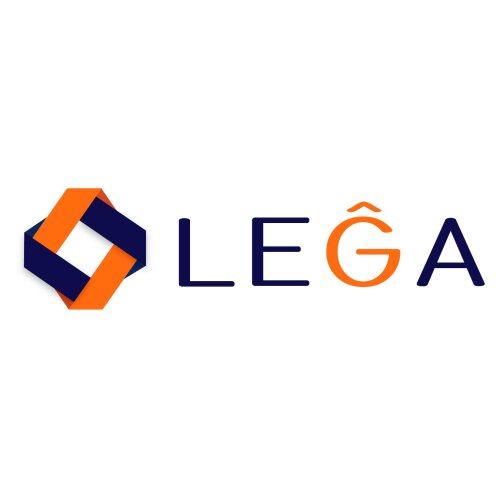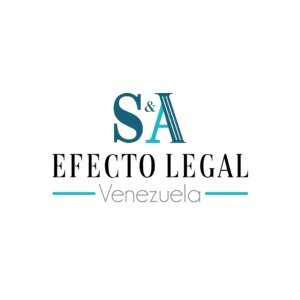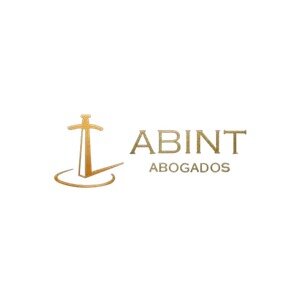Best Public-Private Partnerships (PPP) Lawyers in Venezuela
Share your needs with us, get contacted by law firms.
Free. Takes 2 min.
Or refine your search by selecting a city:
List of the best lawyers in Venezuela
About Public-Private Partnerships (PPP) Law in Venezuela
Public-Private Partnerships, known as PPPs, are legal and financial arrangements in which governmental entities partner with private sector organizations to develop, finance, and operate public infrastructure or services. In Venezuela, PPPs are increasingly considered an alternative to traditional public procurement, particularly where the government seeks private investment and expertise to complement public resources. The PPP scheme may include sectors such as transportation, energy, water, telecommunications, and social infrastructure.
The legal framework for PPPs in Venezuela is evolving and often incorporates specific laws, regulations, and contractual agreements for each project. While there is no comprehensive, standalone PPP law as of early 2024, various sectoral laws, the Venezuelan Constitution, and international conventions influence the structure and execution of PPP contracts.
Why You May Need a Lawyer
PPP projects are complex, combining elements of public law, private law, regulatory compliance, and funding arrangements. Legal counsel is often indispensable in the following scenarios:
- Drafting, reviewing, or negotiating PPP contracts and concession agreements
- Ensuring compliance with Venezuelan and international laws, including procurement and anti-corruption statutes
- Managing disputes, litigation, or arbitration related to PPP contracts
- Conducting due diligence on proposed partners or projects
- Securing permits, licenses, or governmental authorizations
- Advising on project financing, tax, and repatriation of profits
- Protecting intellectual property and proprietary technology within PPP projects
- Advising on the interaction between national and local governments and private entities
Because PPPs often involve multiple stakeholders and significant financial commitments, experienced legal guidance is vital to minimize risks and secure a successful outcome.
Local Laws Overview
Venezuela's approach to PPPs incorporates several legal instruments rather than a single codified law. The Constitution of the Bolivarian Republic of Venezuela provides the general framework for national development and investment. Key sector-specific laws that may be relevant include the Organic Law of Public Administration, the Law of Public Procurement, and the Framework Law for Public Services.
PPPs must comply with the following legal highlights:
- Concessions: Many PPPs operate under concession contracts, regulated by sectoral laws like the Law for the Regulation of Electric Service or the General Law of Ports.
- Transparency and Competitive Procurement: The Law of Public Procurement mandates transparency, fair competition, and anti-corruption measures in the selection of private partners.
- Expropriation and Guarantees: Investors often seek guarantees against expropriation and protections for their investments, which may also be addressed in international treaties or contracts.
- Jurisdiction: PPP disputes can be subject to administrative, civil, or international arbitration jurisdictions, depending on contract terms.
- Local Content and Labor: Certain projects may have requirements for local hiring, sourcing, and training, per labor and industrial regulations.
- Currency Exchange and Repatriation: The strict currency control regime in Venezuela can affect how foreign investors manage returns and repatriate profits.
Frequently Asked Questions
What is a Public-Private Partnership (PPP) in Venezuela?
A PPP in Venezuela is a form of collaboration where a government entity and a private sector company jointly undertake a project, typically in infrastructure or public services, sharing risks, responsibilities, and benefits.
Is there a specific PPP law in Venezuela?
As of early 2024, Venezuela does not have a single, consolidated PPP law. PPPs are governed by a collection of sectoral laws and general legal principles found in the Constitution and administrative regulations.
Which sectors commonly use PPP structures?
PPPs are prevalent in sectors such as transportation (roadways, ports, airports), energy (power generation and distribution), telecommunications, water treatment, and urban development.
How are PPP contracts awarded?
PPP contracts are generally awarded through public tenders or competitive bidding processes as stipulated by the Law of Public Procurement, ensuring transparency and equal opportunity for bidders.
What are the main risks for private investors?
Risks include political and regulatory changes, currency and exchange restrictions, dispute resolution uncertainties, and the possibility of expropriation or contract termination by the government.
Are foreign companies allowed to participate in PPPs?
Yes, foreign companies can participate in Venezuelan PPPs, though they may face additional requirements regarding registration, permits, and compliance with foreign investment laws.
How are disputes in PPP contracts resolved?
Disputes can be settled through Venezuelan courts, specialized administrative authorities, or international arbitration, depending on what is agreed in the PPP contract.
What incentives are available for PPP investors?
Government incentives may include tax breaks, import duty exemptions, and access to currency exchange, especially for projects deemed strategic. Incentives depend on current economic policies.
What is the usual duration of a PPP contract?
PPP contracts typically last from 10 to 30 years, depending on the project scope, investment recovery period, and sectoral standards.
Do PPP agreements require governmental approvals?
Yes. PPP agreements almost always require multiple approvals from national, state, or municipal authorities, depending on the project's nature and location.
Additional Resources
The following resources can provide further information or assistance regarding PPPs in Venezuela:
- Ministerio del Poder Popular para Economía y Finanzas - responsible for economic strategy and often involved in PPP approvals
- Servicio Nacional de Contrataciones - guides public contracting and procurement
- Superintendencia Nacional de Inversiones Extranjeras (SIEX) - oversees foreign investment compliance
- Venezuelan sector-specific regulatory agencies (such as those in energy, transport, or water sectors)
- Chambers of commerce and industry associations with experience in PPP projects
- Local law firms with specialists in public law, infrastructure, and international commercial contracts
Next Steps
If you are considering participation in a PPP project or require legal advice related to public-private partnerships in Venezuela, consider these steps:
- Determine the sector and scope of your intended PPP project
- Gather and review all relevant documentation, including project guidelines and procurement notices
- Contact a local law firm or legal specialist with experience in PPPs and Venezuelan administrative law
- Consult with industry associations or government agencies for background and procedural requirements
- Prepare for due diligence, including financial, legal, and operational assessments of the project
- Assess and address any compliance issues related to foreign investment, labor laws, and currency regulations
Engaging qualified legal professionals early in the process can help prevent costly mistakes and ensure your PPP project proceeds efficiently and in compliance with Venezuelan law.
Lawzana helps you find the best lawyers and law firms in Venezuela through a curated and pre-screened list of qualified legal professionals. Our platform offers rankings and detailed profiles of attorneys and law firms, allowing you to compare based on practice areas, including Public-Private Partnerships (PPP), experience, and client feedback.
Each profile includes a description of the firm's areas of practice, client reviews, team members and partners, year of establishment, spoken languages, office locations, contact information, social media presence, and any published articles or resources. Most firms on our platform speak English and are experienced in both local and international legal matters.
Get a quote from top-rated law firms in Venezuela — quickly, securely, and without unnecessary hassle.
Disclaimer:
The information provided on this page is for general informational purposes only and does not constitute legal advice. While we strive to ensure the accuracy and relevance of the content, legal information may change over time, and interpretations of the law can vary. You should always consult with a qualified legal professional for advice specific to your situation.
We disclaim all liability for actions taken or not taken based on the content of this page. If you believe any information is incorrect or outdated, please contact us, and we will review and update it where appropriate.
Browse public-private partnerships (ppp) law firms by city in Venezuela
Refine your search by selecting a city.













